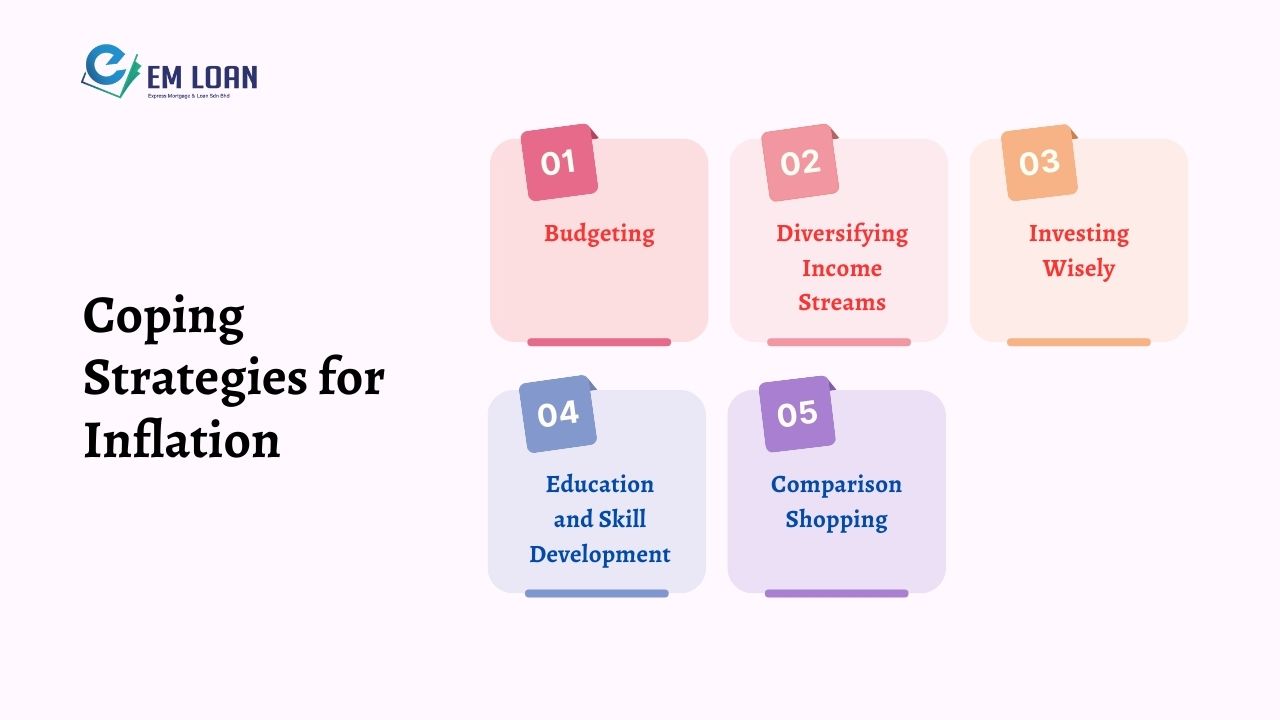Navigating Inflation: Coping Strategies and its Impact on Malaysians
Inflation is an economic phenomenon that affects individuals, families, and nations alike. As Malaysians, we are no strangers to its impact. Inflation leads to the rising cost of living, which is a constant concern for many. In this article, we will delve into the intricacies of coping with inflation and explore how it affects our daily lives.

What is Inflation?
Inflation refers to the continuous increase in the general price level of goods and services over a period of time. It erodes the purchasing power of money. Each unit of currency buys fewer goods and services than it did before. There are various causes of inflation, including increased demand, rising production costs, government policies, and external factors such as global economic conditions.
In Malaysia, the Consumer Price Index (CPI) serves as a crucial barometer for understanding the impact of inflation on households. As the CPI reflects changes in the prices of a wide range of goods and services commonly consumed by Malaysians, it provides valuable insights into the cost of living trends across the nation. When the CPI rises, signaling inflationary pressures, Malaysians face heightened economic challenges as their hard-earned incomes struggle to keep pace with escalating expenses.
Impact of Inflation on Malaysians
Inflation affects various aspects of daily life. One of the most immediate effects is the higher prices of essential goods and services, such as food, fuel, and housing. A piece of Roti Canai cost only RM0.60 in 2003. Twenty years later, the price has increased up to RM2.50. A whopping 316% increase in 20 years! This places a strain on household budgets, particularly for low and middle-income families who may struggle to afford necessities.
Additionally, inflation can lead to a decrease in the standard of living as wages fail to keep pace with rising prices. Even if individuals receive salary increases, these may not be sufficient to offset the higher cost of living. This phenomenon is known as the “wage-price spiral” and can exacerbate income inequality within society.
Furthermore, inflation can impact savings and investments. Fixed-income earners, such as retirees living off their savings or individuals with fixed-interest investments, may find their purchasing power diminished as inflation erodes the value of their assets over time. Similarly, inflationary pressures can affect investment returns, particularly in assets with fixed returns such as bonds.

Coping Strategies for Inflation
While inflation may seem inevitable, there are strategies that Malaysians can adopt to mitigate its impact on their finances.
1. Budgeting
Creating a detailed budget allows individuals to take control of their finances and deal with inflationary pressures. For example, families may inspect their monthly expenditures and identify areas where costs can be trimmed without sacrificing necessities. This could involve switching to more affordable grocery brands, reducing dining out frequency, or finding alternative transportation options to save on fuel expenses. By reallocating funds from non-essential categories and entertainment to essentials like groceries and healthcare, individuals can stretch their budgets further. As a result, the impact of rising prices on their overall financial health can be mitigated.
Moreover, budgeting enables individuals to plan for future expenses and unexpected emergencies. For example, setting aside a portion of income for an emergency fund provides a financial safety net to cover unforeseen expenses such as medical bills or car repairs. By incorporating savings goals into their budgeting process, individuals can gradually build up reserves to buffer against inflationary shocks and maintain financial resilience over the long term.
2. Diversifying Income Streams
Diversifying income streams is a proactive strategy that offers individuals greater financial resilience in the face of inflation. By generating income from multiple sources, individuals can hedge against fluctuations in any single income stream. For example, someone with a full-time job may explore opportunities for part-time work or freelancing to supplement their earnings. Additionally, investing in passive income streams such as rental properties and dividend-paying stocks can provide a steady stream of income unaffected by inflationary pressures.
At the same time, diversifying income streams can also foster personal and professional growth. Engaging in diverse income-generating activities allows individuals to develop new skills and expand their networks. By embracing a diversified approach to income generation, individuals not only bolster their financial resilience but also unlock new opportunities for personal fulfillment and professional advancement.
3. Investing Wisely
Investing wisely is crucial for Malaysians seeking to preserve and grow their wealth in the face of inflationary pressures. While cash holdings may seem safe and liquid, they are vulnerable to decreases in value over time due to inflation. Therefore, it is important to allocate a portion of one’s portfolio to assets that have historically outpaced inflation to maintain purchasing power. For example, equities or stocks have historically provided returns that exceed the rate of inflation. They offer investors the potential for capital appreciation and dividend income over the long term.
Real estate investments also serve as a hedge against inflation, as property values tend to appreciate over time in line with rising prices. Moreover, rental income from investment properties can provide a steady stream of cash flow that adjusts for inflation through periodic rent increases. Similarly, commodities such as gold and silver have historically maintained their value in times of inflationary pressure, making them attractive options for hedging against currency devaluation. By diversifying your investment portfolio across these inflation-hedging assets, you can effectively safeguard your wealth and mitigate the effects of inflation.

4. Education and Skill Development
Investing in education and skill development is an invaluable strategy for Malaysians looking to not only cope with inflation but also thrive in a rapidly evolving economic landscape. By pursuing further education, whether through formal degrees or certifications, individuals can acquire the knowledge and skills needed to secure higher-paying jobs and advance in their careers. When you enhance your earning potential and career prospects, you can command higher wages and remain competitive in the job market despite inflationary pressures. In short, if the inflation rate increases by 3%, then you just need to find an opportunity to increase your salary by more than 3%.
5. Comparison Shopping
Comparison shopping is a powerful tool for Malaysians to combat the effects of inflation on their purchasing power. As prices of goods and services continue to rise, consumers are faced with the challenge of making their money go further. By actively comparing prices and seeking out the best deals, individuals can mitigate the impact of inflation on their budgets. Whether it is groceries, clothing, or household items, taking the time to research and compare prices across different retailers can yield substantial savings over time.
Moreover, in an inflationary environment, consumers can leverage discounts and promotions to maximize their savings and make every Ringgit count. By staying informed about ongoing promotions and strategically timing their purchases, individuals can capitalize on opportunities to secure goods and services at lower prices, thus preserving their purchasing power amidst inflationary pressures.
Furthermore, comparison shopping fosters financial mindfulness and encourages responsible spending habits. By actively seeking out the best value for their money, individuals become more conscious of their purchasing decisions and less susceptible to impulse buying. This not only helps them save money in the short term but also promotes a more sustainable and frugal approach to consumption. It can have long-lasting benefits for their financial well-being. In essence, comparison shopping is an effective strategy for Malaysians to make the most of their hard-earned income to combat inflation.
Conclusion
Inflation is a persistent economic challenge that affects Malaysians of all walks of life. By understanding its causes and effects, as well as implementing proactive coping strategies, individuals can better navigate the uncertainties of rising prices and safeguard their financial well-being. Through prudent financial management, diversification of income, and strategic investments, Malaysians can mitigate the impact of inflation and build a more secure future for themselves and their families.
